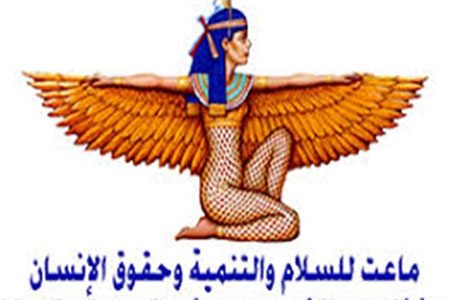
Maat demands that the international and regional mechanisms should be developed to reduce the phenomenon
Afrasianet - On World Day against Trafficking in Persons, July 30 from each year, Maat for Peace, Development and Human Rights calls for concerted international efforts to combat the phenomenon of trafficking in persons, deter traffickers and eliminate the root causes of this phenomenon, which has become the most important challenge to the human rights in the world.
The United Nations defines trafficking in persons as a "crime of exploitation of women, children and men for a variety of purposes, including forced labor and prostitution". The Protocol supplementing the United Nations Convention against Transnational Organized Crime also defined "trafficking in persons means the recruitment, transfer, harboring or receiving of persons through the use or threat of use of force for the purpose of exploitation".
Maat noted that the Arab region, in particular the areas of armed conflict in Syria, Libya and Yemen, is spreading trafficking in women and children by armed groups, with many reports indicating that many cases have been documented for crimes related to the involvement of children and women in conflict, use them in illegal acts and force them into inhumane practices.
In 2010, the United Nations General Assembly adopted the Global Plan of Action to combat trafficking in persons and urged governments throughout the world to take coordinated and concerted action to defeat this phenomenon. The plan urged that the fight against human trafficking be included in United Nations programmes to promote human development and support security around the world. One of the issues raised in the United Nations plan was the establishment of the United Nations Voluntary Trust Fund for Victims of trafficking in human beings, especially women and children.
Maat considers that the phenomenon of trafficking in persons is a form of international organized crime and represents slavery in the modern age. Victims of trafficking in persons are lured by deception or coercion and trafficked between countries and regions, and persons are deprived of their independence, freedom of movement and choice and are exposed to various forms of physical and psychological abuse. Maat therefore calls for the development of international mechanisms to reduce the phenomenon of trafficking in persons and for strengthening national and regional capacities in this direction.

